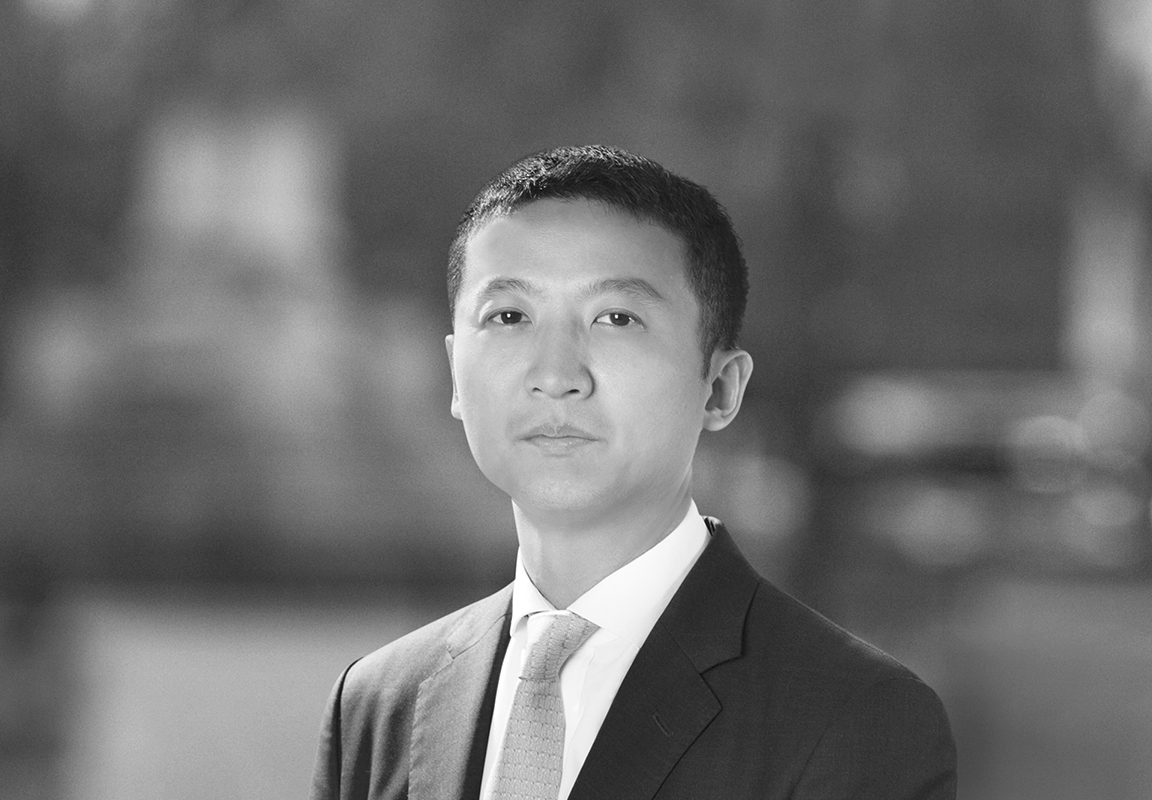
White & Case, in collaboration with the Berkeley Center for Law & Technology (BCLT), are delighted to invite you to the launch of our 18th Taiwan Roundtable Series on Friday, 22 September. Bringing together a panel of distinguished international speakers, the discussion will draw on the recent White & Case report about the future of globalization and the emerging world of "clubs and fences". It offers a new conceptual model for understanding how legal and regulatory developments around the world are reshaping global interconnectedness, and how this affects global business. Our roundtables will focus in on this changing face of globalization and how it impacts Taiwanese companies looking for growth opportunities.
We are keen to hear from all of you on how you are seeing these topics play out in your organisation, industry and market. Discussion will be moderated by White & Case.
Participation is by invitation only.
Friday, 22 September 2023
9:00 a.m. – 2:00 p.m. Taiwan Standard Time
Mandarin Oriental Taipei
158 Dunhua North Road
10548 Taipei, Taiwan
Roundtable 1 and 2 are concurrent sessions
Roundtable 1 | Navigating the evolving trade, economic sanctions and export control environment
In the emerging world of clubs and fences countries are testing the limits of traditional trade rules through expanded unilateral trade actions and more vigorous industrial policy. Targeted restrictions on free trade, or "fences", are becoming more commonplace in the international trading system with national security surfacing as one notable justification for unilateral restraints on trade and financial transactions. In addition, a growing number of countries are joining new or existing regional trade partnerships, or "clubs" with the pace of regionalization and depth of integration under many of these agreements increasing dramatically. In particular, new economic sanctions and export controls resulting from the conflict in Ukraine and trade tensions between the United States and China have created challenges for Taiwanese companies in international finance and trade where they may find themselves increasingly "caught on a fence".
Cristina Brayton-Lewis (Washington, DC) | James Hsiao (Hong Kong) | Chris Corr (Washington, DC, Beijing) | Mark Cohen, Asia IP Project Director, BCLT
Roundtable 2 | The clubs and fences of global foreign direct investments and competition law – challenges to Taiwanese businesses
In response to a shifting geopolitical landscape and a growing awareness that national security threats can become intertwined with economic competition, governments of advanced economies have expanded both the scope and reach of investment screening measures and competition law enforcement. There has been a significant shift from free flows of foreign investment to heightened government scrutiny. In the FDI context, cross-border M&A transactions now require carefully managing considerations in jurisdictions with varied rules, triggers, and timelines. The new and expanded regulatory frameworks target countries that are perceived to present national security threats and can also impact investors with relationships to those countries.
On the competition front, there is an increasing number of new competition law jurisdictions as well as significant shifts in policy by regulators, notably in the U.S. We see continued vigorous antitrust enforcement in the tech sector, but by a larger range of authorities. New types of rules have emerged and existing rules are being revised, covering topics such as foreign subsidies, platforms and gatekeepers. Consequently, businesses—especially those that hold a significant market position— are navigating an increasingly complex global competition law regime.
Orion Berg (Paris) | Anna Kertesz (Washington, DC) | James Killick (Brussels) | Karalyn Mildorf (Washington, DC)
Roundtable 3 and 4 are concurrent sessions
Roundtable 3 | Using US courts to police trade secret theft
The US is known for having a robust set of laws for policing trade secret theft, backed by significant damages and injunctive relief. Increasingly, acts of trade secret theft happening entirely outside the US are being litigated in US courts, even if neither party to the lawsuit is a US company. In addition, recent years have seen an uptick in Section 337 trade secret claims. This panel will explore the trend of increased trade secret litigation in the US by foreign parties.
Yar Chaikovsky (Silicon Valley) | Jordan Coyle (Washington, DC) | Jonathan Lamberson (Silicon Valley) | Phil Ou (Silicon Valley) | Mark Cohen, Asia IP Project Director, BCLT
Roundtable 4 | Getting deals done in a world of clubs and fences – opportunities for Taiwan
In a world of shifting geopolitical tension intertwined with recession concern, there is a declining trend in global and Asia-Pacific M&A deals in the first half of 2023, due to spiking interest rates and tightening credit, and in particular, private equity/venture capital-backed deals. Taiwan, however, demonstrates a rare resilience in both inbound and outbound M&A activity, including de-SPAC transactions. Taiwanese banks continue to play an important part in supporting M&A and other business activities, for market players ranging from domestic enterprises to global financial sponsors. Being a stable supply of US dollars and alternative currencies in Asia-Pacific, Taiwanese banks are trusted by sponsors and borrowers for their cross-border financing needs, and have expanded their footprints to markets such as India, Southeast Asia and Australia, despite of the legal and regulatory challenges they may face in some of these jurisdictions. Private funds will also have a significant role to play in providing capital to fund inbound and outbound investment activity, and opportunities exist for those who are prepared to navigate through the increasing challenges posed by the macro-economic and regulatory environment in the funds industry. Given the market conditions in mainland China, Taiwanese funds have also exercised (to varying degrees of success) various litigation strategies to exit their non-performing investments in mainland China. They have also received regulatory support in mainland China to pursue such exits.
Wilfred Ho (Hong Kong) | David Li (Beijing) | Anthony Wong (Hong Kong) | Ilan Wong (Hong Kong) | Daniel Yeh (Hong Kong) | Manley Leung (Hong Kong) | Shifeng Ni (Hong Kong) | Benjamin Li, Partner, Lee and Li (Taipei)
Additional Information
- The program will be conducted in English.
- Virtual option or recording will not be available for this event.
- Program content and speakers are subject to change without notice. This event is free to attend.
- This event is closed to other international law firms and media.
White & Case means the international legal practice comprising White & Case LLP, a New York State registered limited liability partnership, White & Case LLP, a limited liability partnership incorporated under English law and all other affiliated partnerships, companies and entities.
This article is prepared for the general information of interested persons. It is not, and does not attempt to be, comprehensive in nature. Due to the general nature of its content, it should not be regarded as legal advice.
© 2023 White & Case LLP



















